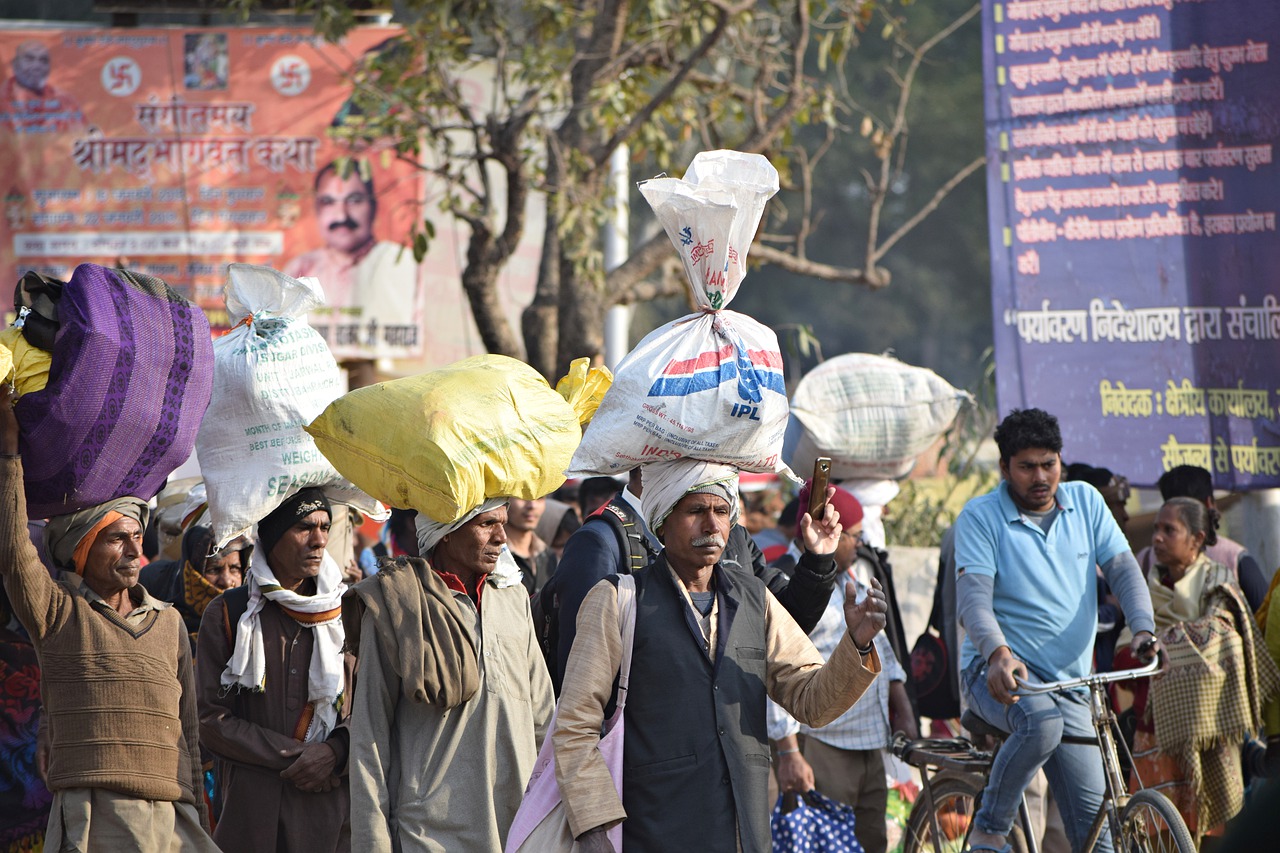A furtive finger is placed on the lips of dissent in India. The government does this through malicious FIRs for sedition and defamation. In the Supreme Court, the government called its critics “prophets of doom”. But such censorship is also done by fellow citizens.
Over the last few days, the country witnessed one of the most horrific images of the government’s failure during the COVID-19 lockdown. It was a viral video of a tired and confused child, tugging at a blanket that covered his mother. He was trying to wake her as she lay asleep on the cold platform of a railway station in Muzaffarpur, Bihar. The infant could not comprehend that she was, in fact, dead. The blanket that once kept them warm on many a cold and unforgiving night was now a shroud covering her lifeless body. Another migrant was dead, not from COVID-19, but from the government’s incompetence and our apathy towards their plight.
Besides the obvious outrage that one felt after watching this young child trying to wake his dead mother, I couldn’t help but ask myself: What was the true reason for this woman’s death? The government imposed a sudden and unplanned lockdown that took away her fundamental right to earn a daily wage, thus depriving her of her ability to purchase food. It then failed to provide her with any resources to sustain herself. It also additionally prevented her from returning home for a long time.
In the last two months, India has seen millions of internal migrants attempting to walk several hundred kilometers across the country to their home states from their places of work. It is concerning that before imposing the lockdown, the government did not think about what this large section of the poor would do without work – and, as a consequence, without food – once the lockdown was implemented. More worryingly, all branches of the government and civil society exhibited total apathy towards these people as their pilgrimages of pain and hunger became known to us.
It is not too difficult to understand why governments dragged their heels when it came to helping the struggling migrants. Migrants do not form a significant vote base for politicians to care about them. In the judiciary, several High Courts wasted no time in passing orders to ensure that they were taken care of. But the Supreme Court took suo moto cognizance of their plight only a few days ago – two months after the lockdown was first imposed and after several former judges and eminent lawyers expressed their concern at its inaction.
But what about the rest of us? Many ordinary citizens began sounding the alarm bells days into the lockdown. But they were (and continue to be) derided by some, who – even during a crisis – choose to hold on to preconceived prejudices. Many continue to refuse to carefully examine the government’s actions during this time.
Some were quick to lambaste the activists for not appreciating the government, which they said was “doing its best”. This isn’t an office birthday party that the government is organising; “doing its best” is not enough. People’s lives are at stake; real people with real families, just like yours and mine. Yet, it was not long before some began throwing around that infamous slur – calling those who did not appreciate the government ‘anti-nationals’.
These attacks may have discouraged a few people from asking important questions of the government, regarding the steps it had taken to protect the migrants. However, one also has to wonder what effect this kind of unhealthy and misguided censorship can have, even on those who employ it. By fervently calling those who ask questions of the government ‘anti-nationals’, they have – in the bargain – conditioned even their own selves to never question any government. This is the most pernicious effect of zealous and blind devotion to a government – any government. The effect is a subtle and absolute silencing of voices that dare to question those in power when they fail us.
A furtive finger is placed on the lips of dissent in India. The government does this through malicious FIRs for sedition and defamation – and also more overtly through orders. In the Supreme Court, the government called its critics “prophets of doom”. But such censorship is also done by fellow citizens. Supporters of the government are unable to understand that holding it to account by asking difficult questions does not sully one’s patriotism. They attempt to silence those who ask questions, while they themselves make excuses for the government (which has failed them as well!) This is exactly what any government in power hopes for – a quiet, pliant populace that will not question it or hold it to account when it runs roughshod on their rights.
Unfortunately, many of these migrants were not in a position to assert their rights by protesting against the excesses and ineptitude of the government. They realised quickly that they could not rely on the government for help when they needed it. The majority of them quietly accepted their fate and began their arduous journeys home.
All of us are taught that our Constitution “grants” us our fundamental rights. This is a misconception. Our rights have always existed and the Constitution merely recognises that fact. This understanding was even affirmed by the Supreme Court in K.S. Puttaswamy v. Union of India. We should not, therefore, believe that we are at the mercy of any government or institution. Our rights are not charitable gifts from the government. We should demand them – at all times. It is understandable that the migrants had bigger problems at hand and could not think of protesting on empty stomachs. But it is precisely in such situations that the privileged among us should stand up for them.
Yesterday, the Patna High Court took suo moto cognizance of the migrant woman’s death in Muzaffarpur. The Bihar government informed the Patna High Court that the woman was mentally unstable and died a natural death. One of the issues framed for adjudication by the Court is whether or not this was indeed the case. This matter will be heard next in the first week of June.
Regardless, there have been several incidents since the lockdown of migrants going through unimaginable pain, horror, hardship and death, just in the quest to get home so that they don’t starve. This should move us all. Even if governments choose not to act because it is politically expedient not to so do, it does not give them the liberty to shirk their duties to all people.
Public memory, as the cliché goes, is short. But it is not absent. We must not forget how our governments treated our fellow citizens in a time of crisis – when the purpose and role of the government were most relevant. We must be unforgiving of their failure to do their jobs when we go to the polling booths – not just for ourselves, but also for the woman who died, and her son, who was orphaned by the government’s incompetence. We must be the voice of the voiceless. Most importantly, we must take our fingers off each other’s lips and always demand answers from those in power.
Abhirup Bangara is the Governance Editor of Freedom Gazette. He is a practising advocate in the High Court of Karnataka and a graduate of International Legal Studies from New York University. He has previously worked with Justice S. Abdul Nazeer, Judge of the Supreme Court of India.


